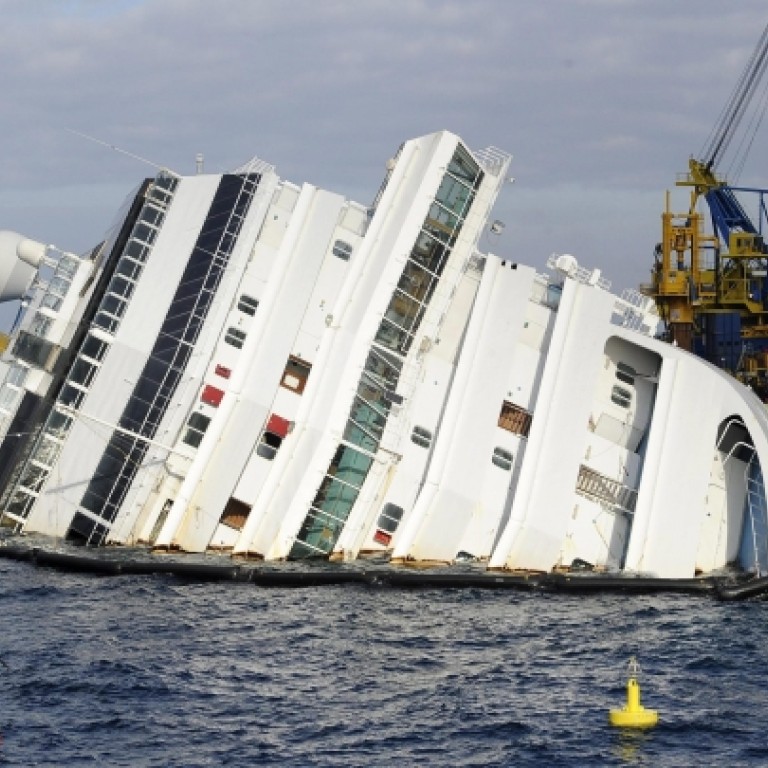
Carnival CEO stepping down after 34 years, staying as chairman
Carnival Corp boss steps down after a series of embarrassing mishaps involving the company’s ships
Carnival Corp said its chief executive of 34 years, Micky Arison, would hand over the reins of the company he built into the world’s largest cruise ship operator to a long-time board member but stay on as chairman.
Arison, whose late father founded Carnival in 1974, is stepping down after a series of embarrassing mishaps involving the company’s ships, including an engine fire that left the Carnival Triumph adrift for days in the Gulf of Mexico this winter. Bookings have tumbled since then, forcing the company to lower prices.
Even so, shares of Carnival rose 5 per cent on Tuesday as investors registered their relief that Arison would stay on as chairman.
The outgoing chief executive said he would work closely with his successor, Arnold Donald, who has served as a Carnival director since 2001 and starts his new job July 3.
“I am not going anywhere. I will remain chairman and my plan is to continue in that role for the foreseeable future,” Arison told investors.
Donald was a senior vice president at Monsanto in the late 1990s and served as chief executive of the seed giant’s Equal sweetener business when it was spun off as Merisant in 2000.
Carnival, whose lines include Holland America, Princess Cruises and Costa, also reported lower revenue for its fiscal second quarter, ended May 31, as the fallout from the mishaps inflicted further damage on the company’s results.
Bookings for the rest of this year are behind last year’s pace as Carnival has had to lower prices to entice travelers to use its flagship brand.
In February, its Carnival Triumph was left powerless for days in the Gulf of Mexico following an engine fire, and passengers described an overpowering stench as toilets overflowed. The incident garnered intense media coverage.
A month later, the company cut short a Caribbean cruise after an engine problem idled a ship in St. Maarten.
Howard Frank, Carnival’s operations chief, told investors it would take two to three years for the company’s namesake brand to fully recover.
Last year, Carnival’s Costa Concordia ran aground off the coast of Italy, killing 32 people and hurting bookings. Frank said the Costa division, which primarily serves European travels, would return to profitability this year.
Arison, who owns 29.4 per cent of Carnival shares, is no stranger to public scrutiny. He faced criticism earlier this year for attending a game of his Miami Heat basketball team while passengers were drifting on the Triumph.
But he has also been lauded for turning Carnival into an industry giant and preparing for its expansion in Asia. On his watch, Carnival bought Holland America in 1989, Cunard in 1998 and P&O Princess Cruises in 2003, among blockbuster deals.
Analysts praised the decision to separate the chief executive and chairman roles, which Arison himself conceded was meant to align Carnival with corporate governance best practices.
“It’s good to separate the CEO and chairman roles. It helps with checks and balances,” Morningstar analyst Jamie Katz said.
Arison’s presence, and the fact that veterans like Frank and other senior executives are staying on, will help Donald overcome what some saw as a potential weakness in the incoming chief executive.
“On one hand Donald is a good choice in terms of someone that has familiarity with the company. On the other hand he doesn’t necessarily have the direct operational experience,” ITG analyst Matthew Jacob said.
Donald serves as a director of several companies, including Bank of America.
As the damage from its recent mishaps continues, Carnival said it expects revenue yields, a gauge that blends passenger tickets and what people spend on board, to fall 3.5 per cent to 4.5 per cent in the current quarter.
Carnival’s net income rose to US$41 million in the second quarter, from US$14 million a year earlier. Revenue fell 2 per cent to US$3.48 billion.
Analysts had estimated quarterly earnings of 6 cents per share on revenue of US$3.55 billion.
The company benefited from a 9.7 per cent drop in fuel prices.

